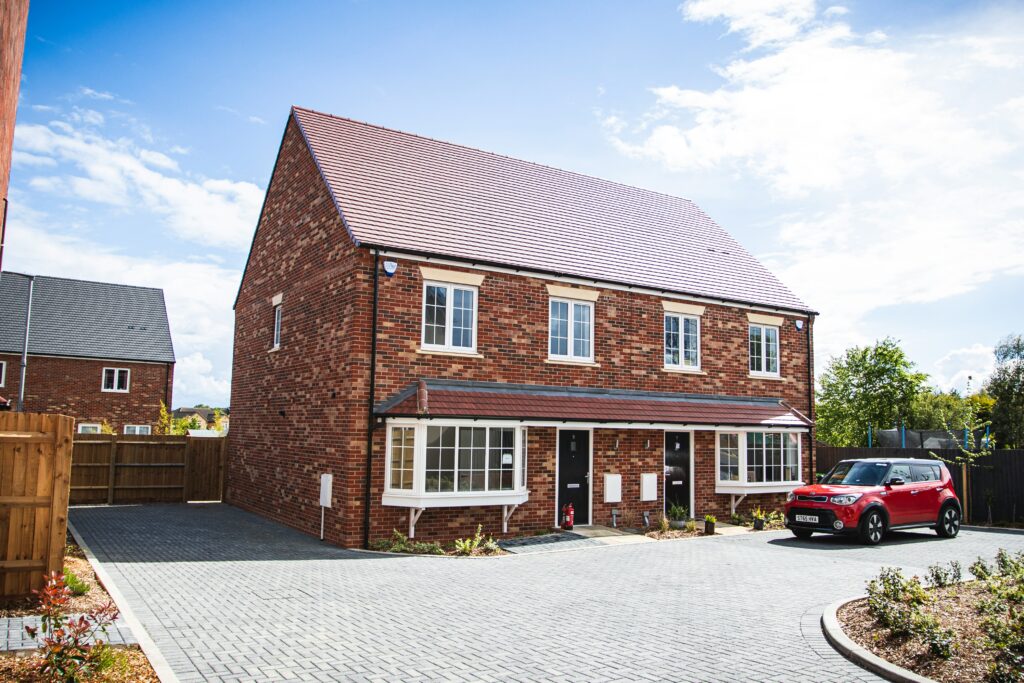
What is a Deed of Variation?
If you own a property, particularly a leasehold or freehold, you might come across the term deed of variation. Sounds fancy, doesn’t it? But at its core, it’s a legal tool that allows you to tweak the terms of an existing contract – like your lease agreement. This could mean anything from extending the length of your lease to changing ground rent or adjusting other terms in the lease that you’re not too happy with.
It might sound complicated, but it’s actually a pretty straightforward process if you know what to expect. In this guide we’ll talk about what a deed of variation really is, how it works and why it could be something you need to consider if you’re dealing with leasehold property.
What is a deed of variation on a leasehold property?
When you buy a leasehold property, whether it’s a flat or house, you’re not buying the land itself. What you’re really buying is the right to live in the property for a set number of years. The terms of that lease are set out in the lease agreement. But, life happens. Maybe you want to change the lease because things that seemed okay when you first signed the agreement now feel a bit restrictive.
That’s where a deed of variation comes in. It allows you to legally change those terms – whether it’s extending the lease, reducing the ground rent or removing restrictions on things like pets or making alterations. But, here’s the kicker: the freeholder (the person who owns the land) has to agree to these changes. So, you can’t just go in and change things willy-nilly.
The deed of variation is the legal document that makes these changes official. It’s a way to smooth things out between the leaseholder (that’s you) and the freeholder, giving you a bit more flexibility if your circumstances change. This can save a lot of time and effort when you’re working to make a property more manageable or more saleable in the long run, helping both with future negotiations or selling the property without a hitch.
Why might you need a deed of variation?
So why would you need a deed of variation? Well, here’s why it might come in handy:
- You want a leasehold extension
If your lease is ticking down and you need to extend it to avoid complications when selling, a deed of variation is the simplest way to make that change.
- You’re dealing with ground rent issues
If your ground rent is creeping up and you want to fix it or make it more affordable, a deed of variation can lock in a more reasonable amount.
- You want rid of restrictive covenants
If you’re fed up with harsh rules on things like pets, making alterations or subletting, a deed of variation could help give you the freedom you need.
- There are errors in the existing paperwork
Sometimes it’s something small like a mismeasure on your property boundary, but if it’s not sorted, it can cause problems down the line. A deed of variation makes sure everything’s correct and up to date.
In short, a deed of variation is all about making changes to the terms of your lease that work better for you – and of course getting the freeholder’s say-so to make it happen. If you’re looking to make sure your living situation is as flexible as possible, this could be the way forward.
Can I get a deed of variation on a freehold property?
Yes, but these work a little differently. A freehold property means you own the land outright, but the deed of variation still comes into play if there are changes needed to your legal documents. Maybe you’ve realised there’s a mistake in the title deeds – like an incorrect boundary line or a name on the document that shouldn’t be there. A deed of variation can fix that.
In these cases, the changes are usually smaller but just as important. Addressing issues like this now can prevent bigger headaches when you’re trying to sell or transfer the property later, ensuring smooth transactions down the road.
What’s the process of making a deed of variation?
First things first, you need to chat with everyone involved—usually you (the leaseholder), your freeholder (the landlord), and sometimes your mortgage lender—to agree exactly what changes you’re after.
Once everyone’s on board, a solicitor will put together a legal document spelling out the new terms in clear, unambiguous language. Then it’s just a case of signing on the dotted line.
How long does a deed of variation take?
If you’re just looking to extend a lease or adjust some ground rent, it could take just a few weeks to get everything signed off.
However, if you’re dealing with more complex issues or need a bit of back-and-forth with the freeholder, it might take longer – possibly a few months.
At the end of the day, the aim of the game is getting freeholder’s agreement. If there’s a bit of back-and-forth, it can slow things down. But if you’re under pressure to sell and need to move quickly, we can help you bypass all that stress – more on that in a moment.
How much does a deed of variation cost – and who pays?
The cost of a deed of variation can vary depending on the complexity of the changes and the parties involved.
For a relatively simple change, you might pay a few hundred pounds, but more complex cases can push the cost up to a few thousand. The price typically covers solicitor fees, and if the freeholder is involved in negotiations, they may charge as well.
As for who pays, the leaseholder (you) usually foots the bill, so make sure you can cover the costs before moving forward, as it can add up, especially if you’re negotiating changes with a freeholder or if the situation is complicated. However, in the long run, it can save you money by avoiding issues down the line.
Can a deed of variation be challenged?
Technically, yes. A deed of variation can be challenged, especially if there’s something not quite right about the agreement. If one party feels like they’ve been pushed into agreeing to the changes or if the terms are too unfair, they might challenge it. That’s why it’s so important to make sure everything is above board, properly agreed on and legally sound.
It’s always wise to get a solicitor involved to ensure the document is watertight and won’t cause problems down the line.
Does a deed of variation need to be registered?
Yes, if you’re making significant changes – like altering a lease – it’s likely that the deed of variation will need to be registered with the Land Registry. This makes sure that the changes are official and will be recognised in any future transactions.
It doesn’t matter whether you’re selling, remortgaging or just tidying up the paperwork – you’ll want to register the deed of variation is key to make sure everything is legally recognised.
Facing leasehold issues? We make selling your home stress-free
If you’re dealing with property complications, legal documents like deeds of variation or leasehold issues, there’s no need to stress. Selling a property doesn’t have to be complicated. Whether you’re managing tricky legalities or just need a fast and simple way out, the traditional methods of selling a home can often add more headache than they’re worth.
With us, the process is different. At Sell House Fast we offer a quick way of selling a house for cash that cuts through the paperwork and lets you move on quickly. We make everything transparent and stress-free, with no hidden fees and no long delays. You won’t need to worry about waiting for buyers, lengthy negotiations or anything else that slows the process down.Get your free cash offer now and discover how easy it can be to sell your home with Sell House Fast.


